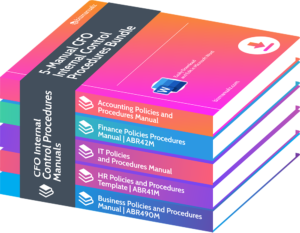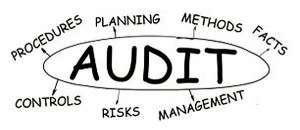What is the Difference Between Finance and Accounting?

Finance and accounting are two closely related fields that play vital roles in the management and decision-making processes of businesses. While they are interconnected, finance and accounting have distinct definitions and key responsibilities. To fully understand the differences between these two disciplines, it is important to delve into their basics and explore the specific skills, education, qualifications, and career opportunities they offer. What is the difference between finance and accounting?
Definitions of Finance and Accounting
When it comes to managing the financial aspects of an organization, two disciplines play a vital role: finance and accounting. Both are essential for the smooth functioning and success of any business. Let’s take a closer look at the definitions and key responsibilities of each.
Definition of Finance
Finance is more than just dealing with money. It is a discipline that focuses on managing money, investments, and financial resources within an organization. Finance professionals work tirelessly to ensure the financial health and stability of a company.
One of the key aspects of finance is strategic planning. Finance professionals analyze the current financial situation of the organization and develop strategies to optimize its financial resources. They consider factors such as cash flow, investment opportunities, and risk management to make informed decisions.
Investment analysis is another crucial responsibility of finance professionals. They evaluate potential investment opportunities, assess risks, and determine the potential returns. By analyzing investment portfolios, finance professionals help organizations make sound investment decisions to maximize profitability.
Risk management is yet another critical area within finance. Professionals in this field identify potential risks that could impact the organization’s financial stability and develop strategies to mitigate them. Through effective risk management, they protect the organization from financial losses and ensure its long-term sustainability.
Finance professionals also play a crucial role in providing recommendations on how to allocate financial resources efficiently. By analyzing the financial data, they identify areas where resources can be allocated for maximum benefit. Their recommendations help organizations optimize their financial performance and achieve their strategic goals.
Definition of Accounting
Accounting, on the other hand, is the process of recording, summarizing, and interpreting financial transactions of a business. Its primary objective is to provide accurate and reliable financial information to stakeholders, including investors, creditors, and management.
One of the key responsibilities of accountants is to ensure that financial transactions are accurately recorded. They maintain detailed records of all financial activities, including sales, purchases, and expenses. By meticulously recording these transactions, accountants create a solid foundation for financial reporting and analysis.
Financial reporting is an integral part of accounting. Accountants prepare financial statements and reports that provide a comprehensive overview of the organization’s financial performance and position. These reports are not only used for internal decision-making but are also crucial for external stakeholders such as investors and creditors.
Compliance with legal and regulatory requirements is another significant aspect of accounting. Accountants ensure that the organization’s financial practices adhere to relevant laws and regulations. This includes accurately calculating and paying taxes, following accounting standards, and maintaining proper documentation.
Accountants also play a crucial role in helping management make informed decisions. By analyzing financial data and preparing financial reports, they provide insights into the organization’s performance. This information helps management identify areas of improvement, make strategic decisions, and allocate resources effectively.
In summary, finance and accounting are two interconnected disciplines that are essential for the financial success of any organization. Finance focuses on managing money, investments, and financial resources, while accounting involves recording, summarizing, and interpreting financial transactions. Together, these disciplines ensure the financial health, stability, and growth of businesses.
Key Responsibilities in Finance and Accounting
Responsibilities in Finance
Finance professionals have diverse responsibilities that depend on their specific roles within an organization. They are typically involved in analyzing financial data, preparing budgets, managing cash flows, and evaluating investment opportunities. Additionally, finance professionals may be responsible for forecasting and modeling financial scenarios, conducting risk assessments, and assisting with financial audits or compliance.
One of the key responsibilities of finance professionals is analyzing financial data. They meticulously examine financial statements, balance sheets, and income statements to gain insights into the financial health of the organization. By analyzing these reports, finance professionals can identify trends, patterns, and areas of improvement. They use this information to make informed decisions and provide recommendations to management.
In addition to analyzing financial data, finance professionals also play a crucial role in preparing budgets. They collaborate with various departments within the organization to gather information about projected expenses and revenue. Based on this information, they create detailed budgets that align with the organization’s goals and objectives. They also monitor actual expenses and compare them to the budget to identify any variances and take corrective actions if necessary.
Another important responsibility of finance professionals is managing cash flows. They closely monitor the organization’s cash inflows and outflows to ensure that there is enough liquidity to meet financial obligations. They develop strategies to optimize cash flow, such as negotiating favorable payment terms with suppliers or implementing efficient collection processes for accounts receivable.
Furthermore, finance professionals evaluate investment opportunities to determine their potential return on investment and assess the associated risks. They conduct thorough financial analysis, taking into account factors such as market conditions, industry trends, and competition. Based on their analysis, they provide recommendations on whether to pursue or decline investment opportunities.
Lastly, finance professionals may be involved in conducting risk assessments and assisting with financial audits or compliance. They identify potential risks and develop strategies to mitigate them. They also ensure that the organization complies with financial regulations and accounting standards by maintaining accurate records and implementing internal controls.
Responsibilities in Accounting
Accountants play a crucial role in keeping track of financial transactions, ensuring accuracy, and maintaining proper record-keeping systems. They are responsible for recording financial data, reconciling accounts, preparing and verifying financial statements, and managing accounts payable and receivable. Accountants also contribute to the organization’s financial analysis and help with tax preparation, audit support, and compliance with accounting principles and regulations.
Recording financial data accurately is a fundamental responsibility of accountants. They meticulously record all financial transactions, such as sales, purchases, and expenses, into the organization’s accounting system. This ensures that the financial records are up-to-date and reflect the true financial position of the organization.
In addition to recording financial data, accountants are responsible for reconciling accounts. They compare the financial records with external statements, such as bank statements, to ensure that they match. If there are any discrepancies, accountants investigate and make the necessary adjustments to ensure accuracy.
Preparing and verifying financial statements is another important responsibility of accountants. They compile financial data and prepare financial statements, such as income statements, balance sheets, and cash flow statements. Accountants also verify the accuracy of these statements by conducting thorough reviews and reconciliations.
Managing accounts payable and receivable is a crucial task for accountants. They ensure that all invoices are processed accurately and timely, and that payments are made on schedule. They also monitor accounts receivable to ensure that customers pay their invoices on time and follow up on any overdue payments.
Accountants also contribute to the organization’s financial analysis by providing insights and recommendations based on the financial data. They analyze financial statements, identify trends, and calculate financial ratios to assess the organization’s financial performance. This information helps management make informed decisions and develop strategies for growth.
Furthermore, accountants play a key role in tax preparation. They ensure that the organization complies with tax laws and regulations by preparing accurate and timely tax returns. They also provide support during tax audits and assist with tax planning to minimize the organization’s tax liabilities.
Lastly, accountants ensure that the organization complies with accounting principles and regulations. They stay updated with the latest accounting standards and regulations and implement them in the organization’s financial processes. They also assist with internal and external audits to ensure compliance and identify areas for improvement.
Required Skills for Finance and Accounting
Skills Needed for Finance
To excel in the field of finance, professionals need to possess a diverse set of skills. These include strong analytical and problem-solving abilities, financial modeling expertise, proficiency in using financial software and tools, and the ability to interpret complex financial data. Additionally, finance professionals should have excellent communication and interpersonal skills, as they often collaborate with individuals from various departments within an organization.
Skills Needed for Accounting
Accountants, too, require a unique skill set to thrive in their roles. Apart from a solid foundation in accounting principles and practices, accountants should possess attention to detail, strong organizational skills, and the ability to work with numbers accurately.
In addition, knowledge of accounting software, taxation laws, and the ability to analyze financial statements are crucial. Furthermore, accountants need strong written and oral communication skills to effectively communicate financial information to stakeholders in a clear and concise manner.
Education and Qualifications for Finance and Accounting Careers
Education for Finance Careers
A degree in finance, accounting, economics, or a related field provides a solid foundation for a successful career in finance. Many finance professionals pursue advanced degrees such as a Master’s in Business Administration (MBA) or specialized certifications such as Chartered Financial Analyst (CFA) or Certified Financial Planner (CFP) to enhance their knowledge and job prospects. Continuous learning and staying updated with industry trends and regulations is essential in the dynamic field of finance.
Education for Accounting Careers
Accounting careers typically require a bachelor’s degree in accounting or a closely related field. Many aspiring accountants pursue certifications such as Certified Public Accountant (CPA), Certified Management Accountant (CMA), or Chartered Global Management Accountant (CGMA) to enhance their skills and credibility. Continuing professional education is crucial for accountants to stay up-to-date with changes in accounting standards and regulations.
Career Opportunities in Finance and Accounting
Career Paths in Finance
A career in finance offers a wide range of opportunities across various industries. Finance professionals can work in investment banking, corporate finance, financial planning and analysis, risk management, or financial consulting.
Additionally, they can pursue roles in investment management, private equity, venture capital, or treasury management. The demand for finance professionals remains strong as businesses rely on their expertise to drive strategic financial decisions, manage risk, and optimize financial performance.
Career Paths in Accounting
Accounting careers offer diverse paths, with opportunities in public accounting, corporate accounting, government accounting, and nonprofit organizations. Public accountants work in accounting firms, providing services such as auditing, tax preparation, and consulting to clients.
Corporate accountants, on the other hand, work within organizations, managing financial reporting, budgeting, and internal controls. Government and nonprofit accountants handle financial operations and compliance specific to public sector entities. With the increasing complexity of financial regulations, the demand for skilled accountants continues to grow.
The Difference Between Finance and Accounting
While finance and accounting share common goals of managing and analyzing financial information, they differ in their focus and responsibilities. Finance deals with the strategic management of financial resources and investments, while accounting focuses on financial reporting, record-keeping, and compliance. Both fields require specific skills, education, and qualifications, and offer rewarding career opportunities for individuals passionate about numbers, analysis, and decision-making processes within organizations.

















Leave a Reply